The Ninth Parliament of the Republic of Britain 1878-1884 (Part 1)
Joseph Arch's time as Prime Minister of the most radical government in British history would be incredible tumultuous. As the new government attempted to bring order to the social and economic chaos inherited from the two previous right wing governments the chaotic international situation of 1878 would quickly descend into uncontrollable anarchy. The titanic struggle between the forces of revolution and counter-revolution would spark off conflicts from Siberia to the Pampas – effecting each and every continent in some way.
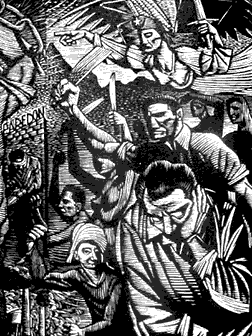
As the countries of Europe were sucked into revolution at the end of the 1870s the vast militant elements of the British working class had armed itself in preparation for an armed struggle to protect their class interests and secure power. But the election of 1878, which was run so terribly close, created a peculiar situation. For all intensive purposes Britain had gone through its own revolution, but the changes had not been won on the streets but in Parliament. The new government was proposing a swathe of radical reforms that met a large portion of the workers' demands. A restoration of the free press, a smattering of social reforms, the restoration of a progressive tax regime (the poorest were to see their taxes almost cut in half), the creation of local democratically run councils, an end to the suppression of strikes, the withdrawal of soldiers to their barracks and even international solidarity with the workers of Central Europe, Anatolia and Quebec as the SSR, Turkey and Quebec all received recognition. Half a revolution had been won! But how to deal with the revolutionaries?
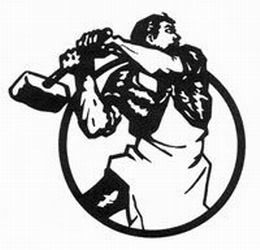
In truth, most of the revolutionaries had little appetite for a war against a socialist government. The largest group (the RFB) saw itself as a primarily defensive organisation (as did many others) and had openly backed a left coalition in the elections. The main force that still demanded more were the numerous small insurrectionist Anarchist groups who lambasted the Marxists and right socialists for stopping short of full working class power. Yet these forces lacked the coordination and the power to lead an anti-government revolt on their own. With so many demands of potential rebels met the Arch government had staved off violent revolution from the left. Yet attempts to convince the groups, especially the RFB, to disarm proved totally futile – armed elements would remain amongst the far left movement.
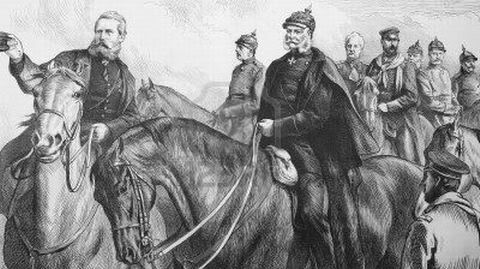
Across the North Sea, whilst the blood of Germany's socialists, trade unionists and radical liberals was still drying across the streets of the German Empire the mighty Imperial military machine was mobilised for yet another task. Having slaughtered the opposition at home the Kaiser and his advisers had concluded that the only way to forever extinguish the threat of revolution would be to do what the Tsar had failed to do and invade the SRR, where the whole affair had begun, and destroy the revolution once and for all. On February 23rd a huge German Army poured across the Southern border into the SRR.
If 1877 had been the year of revolutions then 1878 would be the great year of triumphal reaction. Whilst the Germans marched on as the standard bearers of the old order the French Civil War would come to an end in the summer of 1878 after a few final massacres of rebels in Lille and Marseilles whilst in July the Socialist Republic of Quebec's brief life came to an end as Prince Francois led his reactionary army triumphantly into Quebec City, declaring a new Kingdom of Quebec (with himself ruling as King) and beginning a series of German style purges to remove threatening elements from his new realm. In April a Franco-German backed military coup overthrew the democratically elected government of Switzerland which, similarly to Britain, had consisted of a broad socialist coalition.
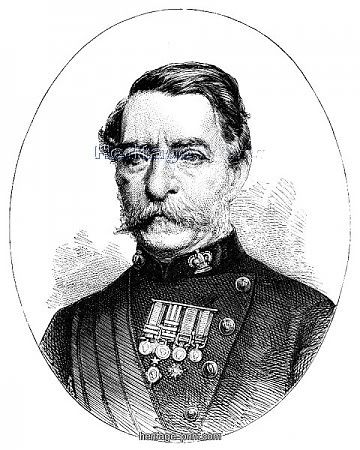
All these events overseas were inspirational to the British right and to the NCP leader Robert Napier in particular. After their narrow defeat in the election the right wing forces of Britain had struggled to come together in unity against the government. Communications between the Liberals and NCP had remained fraught whilst the NCP itself was becoming increasingly divided between Napier's hawks and a more moderate faction led by the up and coming Marquess of Salisbury (who had even considered defection to the Liberals). Yet, the right was united around one goal – the current government had to go. This fact convinced Napier that if he could engineer the overthrow of the government he could establish a new regime with the full backing of the Liberals and NCP alike.
The full picture of the series of calamities known as the 'Napier Affair' that made up the far right's abortive attempt at a coup would not become known until many decades after all the main characters of the story had finally passed away from the political sphere. This would spare them from the full brunt of public humiliation.
Having come to the conclusion in early October that the military should immediately bring down the British government Napier had quickly hatched a conspiratorial plot with a small handful of trusted military commanders. So secret was the plot that very few people were ever told of the plan, not the NCP leadership, not the Liberals, not the military men supposed to carry out Napier's orders. On October 14th Napier sent a courier to take a message to one of his closest allies within the Liberal Party which asked him, in no uncertain terms, if he would measure Gladstone's response to a proposal that he support action to bring down the government. Somehow, the courier, gave the note to the wrong person. Instead of a hard right Liberal MP the note was delivered to a member of the Irish Parliamentary Party. At this stage a large police response should have been organised and the conspirators arrested immediately. But, of course, that did not happen. The IPP MP decided to follow the courier back from whence he came himself, in order to satiate his own curiosity (having largely dismissed the idea of any real danger). From this little journey he came to the small house in which the whole plot was being hatched. By this stage he seems to have started to become unsure of whether there was indeed a plot and went to a local police station where he reported what he had found out so far. From here a group of four policemen went to the house of the conspiracy to investigate the MP's claims. After entering the premises the conspirators decided to arrest the policemen as 'enemies of the state', believing they had been discovered Napier called for the group to go ahead with their coup immediately whilst there was still time. Napier and his small clique decided to travel to a large barracks within London immediately in order gather the men for the coup. One of the members of the conspiracy must have informed someone of the plans as once Napier arrived at the barracks he was met by a small gang of leading, moderate, NCP members who were flanked by soldiers. Napier was quietly led away to a small room, as were the co-conspirators. Napier was forced to agree to resign as NCP leader and to agree to a retirement and exile to the Isle of Man, likewise the other conspirators were all forced into retirement.
Lord Salisbury then assumed the leadership of the National Conservative Party and very little of the whole 'Napier Affair' escaped into the press. Only fragments of information were made known and the members of the conspiracy were all left to enter their respective retirements, not being pursued by the law in any real way.
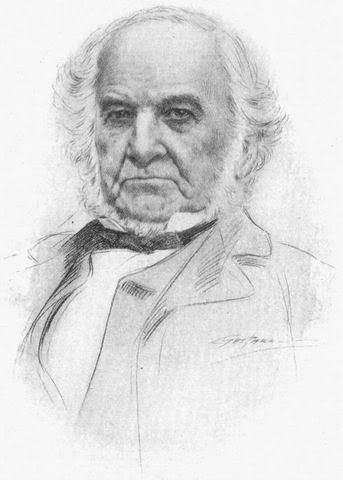
This was to be the low point for the British right. For in the aftermath of the 'Napier Affair' they began to streamline themselves in readiness for a stronger opposition. Over the course of 1878 Gladstone's health had started to greatly improve and he started to rally for once last great battle – re-assuming his dominance over the Liberal Party. Following the fall of Napier and rise of the more moderate Salisbury to the NCP leadership Gladstone decided the time was right to seek a more official agreement with the NCP. The Liberal Party, the National Conservative Party and the Unionists entered into a group called the British Democratic Association. Whilst the 3 parties would maintain their independence they would join into a joint shadow cabinet and would try to create a more certain and homogeneous policy in opposition to the government. With this new unity on the right, the left wing government was sure to be brought down!
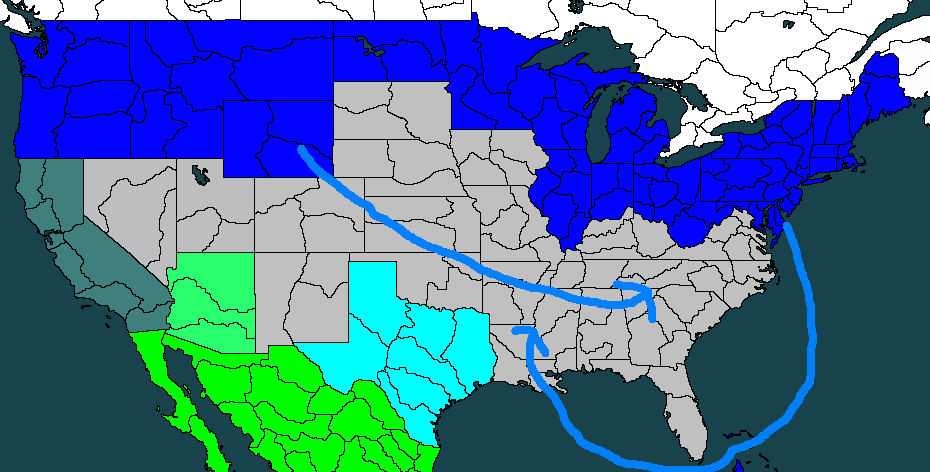
In international affairs November 1878 saw the end of the American Civil War. In this great North American saga the Mexicans had initially joined with the Confederates in their war with the Union. The Mexicans were swiftly defeated and forced to surrender the prosperous state of California. In these early stages the Confederates invested everything in an assault on the Union capital of Washington and briefly captured the city. However, the Confederates had invested everything in the belief that the capture of Washington would win them peace, when this peace did not materialise their hopes of victory were essentially over. Within a month Washington had been retaken whilst in the West the Confederates slowly lost ground. With the Union army gradually marching Eastward the Navy established a blockade that proved extremely damaging to both the Southern economy and European textile industries that had been so reliant on the South's high quality cotton. The last great battles of the Civil War were fought across the Appalachian Mountains between late 1877 and 1878 – here the Union faced numerous defeats and was held at bay for some time, yet their sheer numerical superiority made a Southern victory impossible. Richmond itself was finally lost in November just days after Miami's fall. With that the American Civil War came to an end. Almost immediately afterwards the newly united nation invaded Mexico and claimed the state of Arizona after a short conflict.
Back in Europe, the year 1878 had been one of victories for the forces of reaction in Germany and France. In 1879 the pendulum would once again turn in the other direction and the forces of revolution struck back.
To be continued ....






